Promoting the Benevolence of Medical Personnel, Transmitting Humanistic Care: Award Ceremony of 2024 ‘The Warmth of Medicine’ Medical Humani
On November 8, the award ceremony of 2024 ‘The Warmth of Medicine’ Medical Humanities Essay Contest was held at Peking University Third Hospital, hosted by the School of Health Humanities of Peking University and NEJM Frontiers of Medicine, co-organized by Future Technology Institute of Peking University, and supported by Taikang Yicai Public Health Fund and Beijing Life Oasis Public Welfare Service Center. At the ceremony, awards were presented to the first, second and third prize winners.
Attending the ceremony were Professor Eric Rubin, Editor-in-Chief of the New England Journal of Medicine (NEJM); Ms. Bi Shumin, national author, attending physician of internal medicine and registered counselor; Professor Xiao Ruiping, Associate Editor-in-Chief of NEJM Frontiers of Medicine and Dean of College of Future Technology Peking University; Professor Guo Liping, Dean of School of Health Humanities, Peking University; Mr. Ying Weiwei, Chairman of the Board of Directors of Taikang Yicai Public Welfare Foundation, Assistant President and Secretary of the Board of Taikang Insurance Group, and other representatives from the organizers and supporters, as well as the winners of the first, second and third prizes of the essay writing contest.
Associate Professor Chen Qi, Vice Dean of School of Health Humanities, presided over the opening speech, in which she introduced the selection and winners of the event.
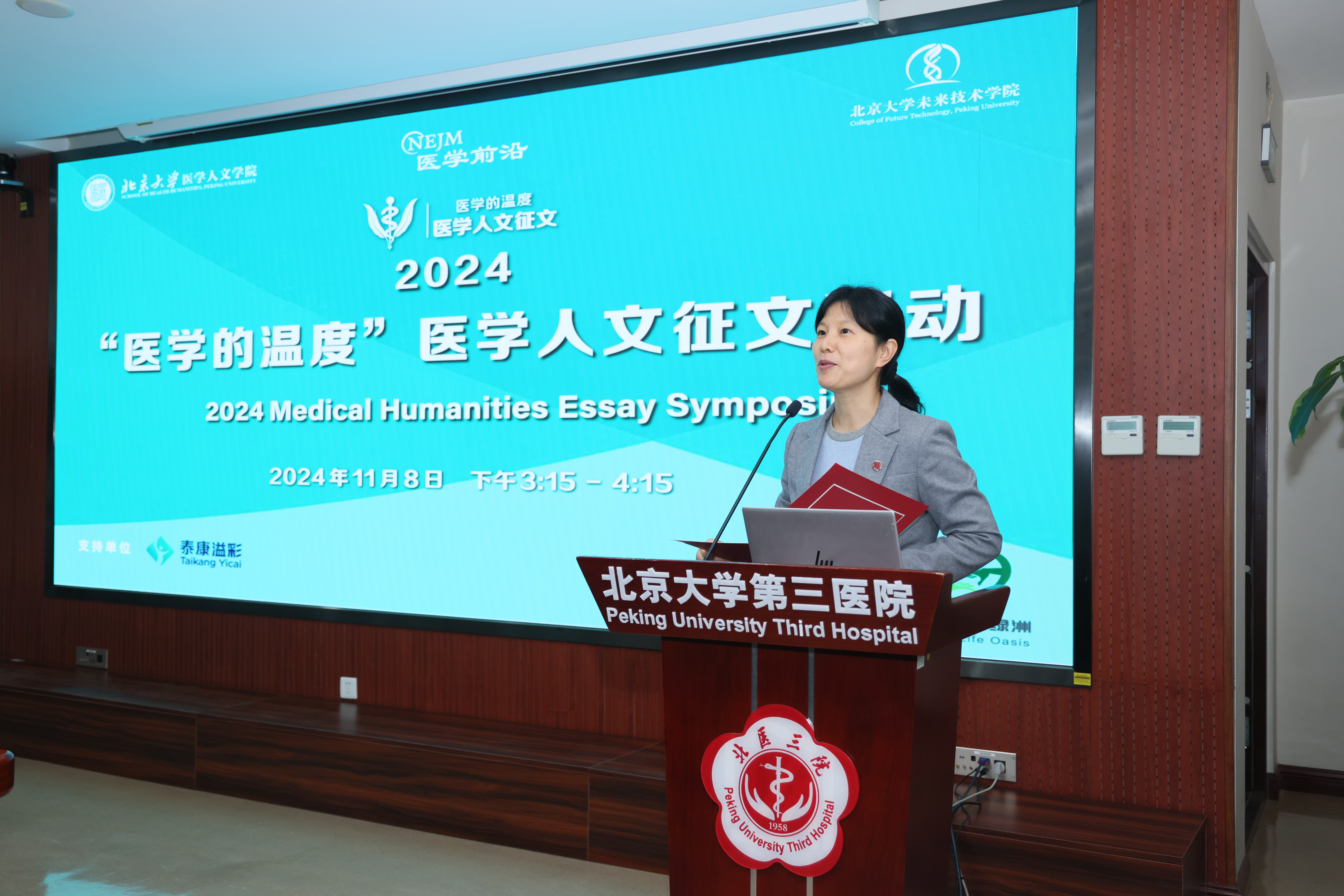
Professor Xiao Ruiping delivered a warm speech. She stated that medical humanities education has a unique status in medical training, and that medical personnel are not only masters of medical technology, but also ‘healers’ with empathy and sense of responsibility. The event encourages doctors to put their benevolence and care for patients into action. This humanistic spirit makes medical personnel different from other professionals. Medical humanism is an indispensable part of medical students' education.
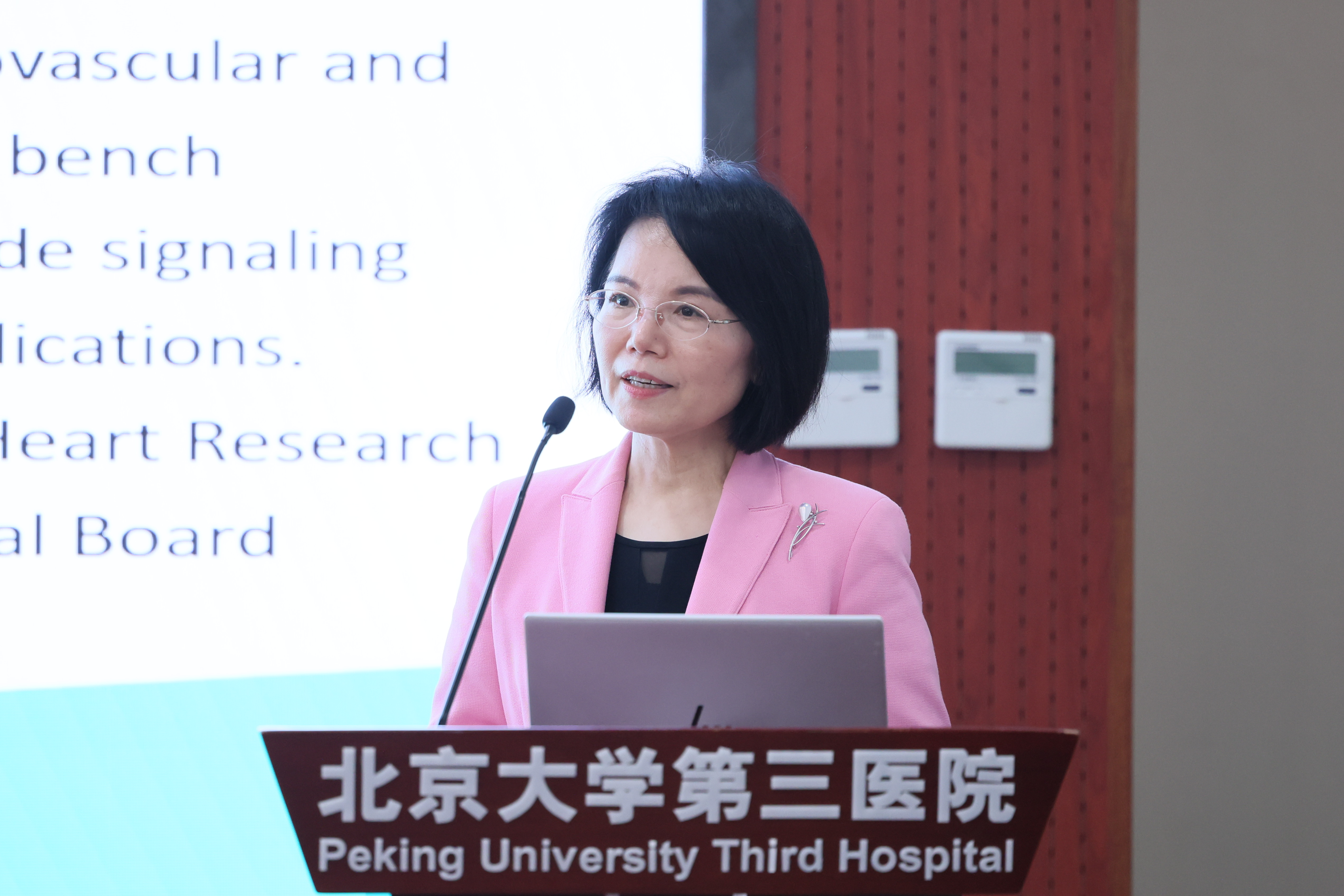
Mr. Weiwei Ying delivered a speech on behalf of Taikang Yicai Public Welfare Foundation. He pointed out that Taikang always adheres to the fundamental values of ‘respecting life, caring for life, and honoring life’, promotes the development of the health industry by supporting medical humanities activities, and provides support for the continuous practice of medical humanities. He emphasized that “medicine needs not only the depth of technology, but also the warmth of humanity”.
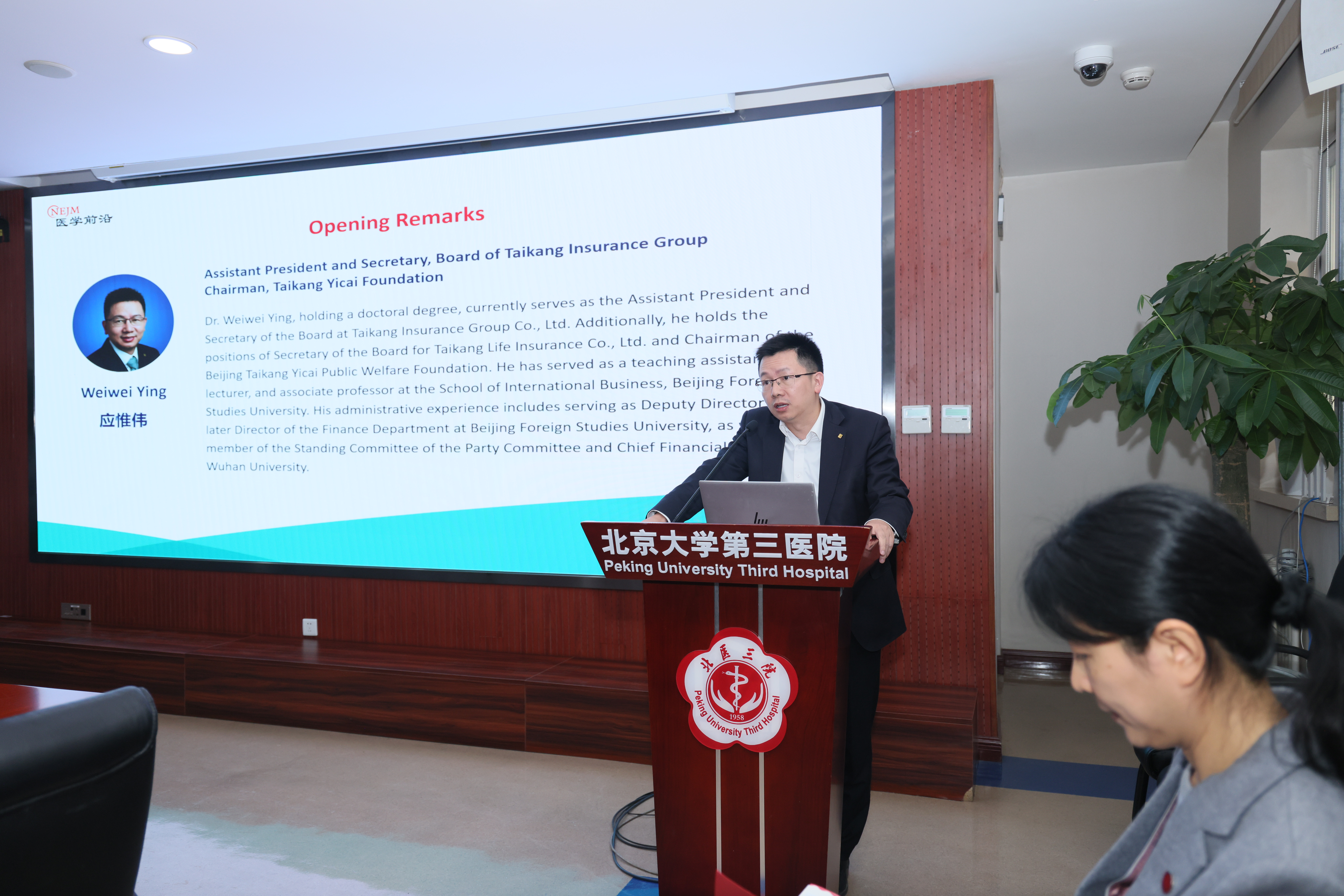
Ms. Bi Shumin shared her feelings as a judge of the essay contest, saying that the awarded essays not only demonstrated the benevolence of medical personnel, but also manifested the light of their humanity in the face of life and death. She pointed out that even if medical science is powerless, love and respect can still bring comfort to patients and their families, and this light of humanity grants medicine a deeper meaning.
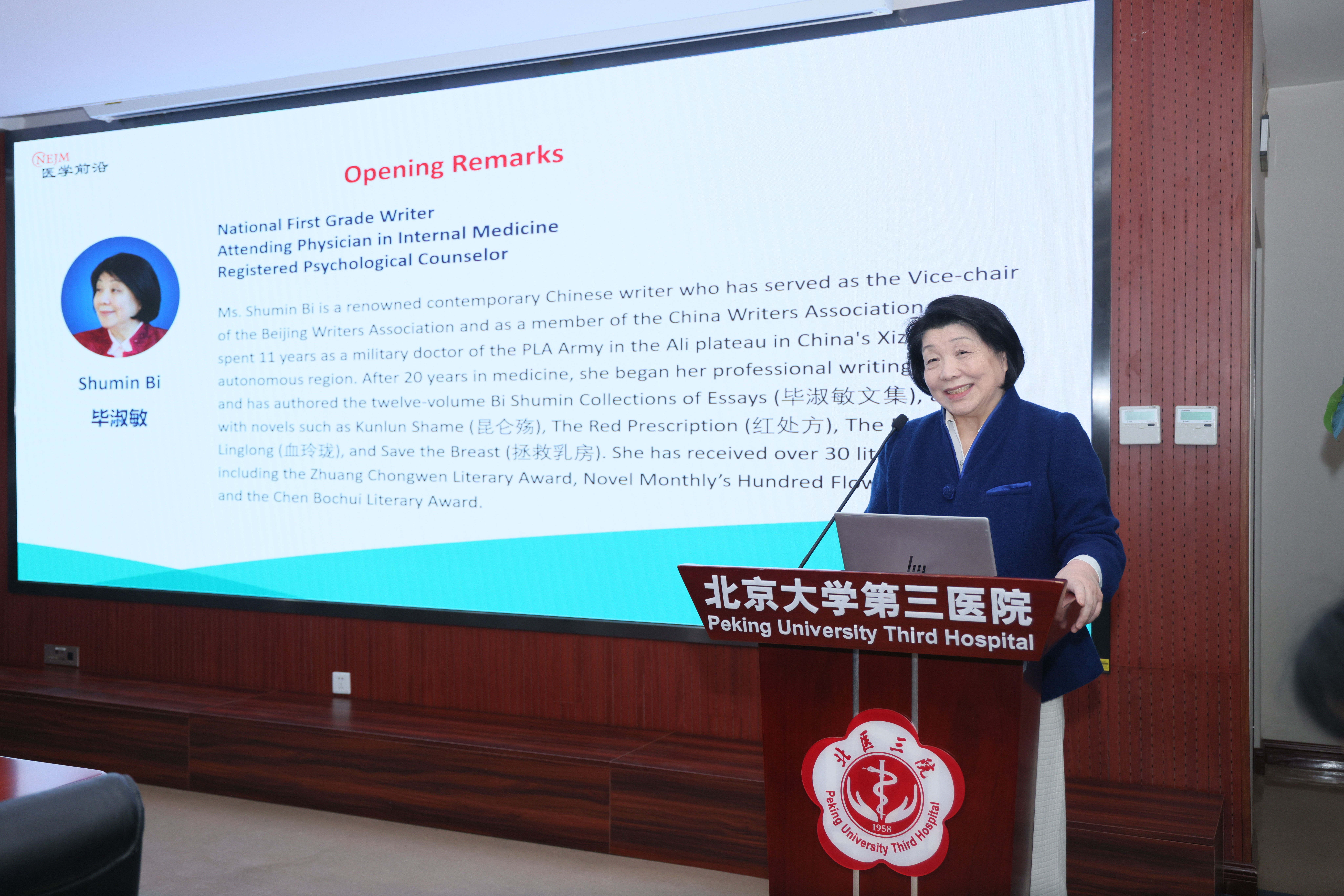
During the award presentation session, the honored guests presented awards to the first, second and third prize winners in turn (See list below) and took group photos.
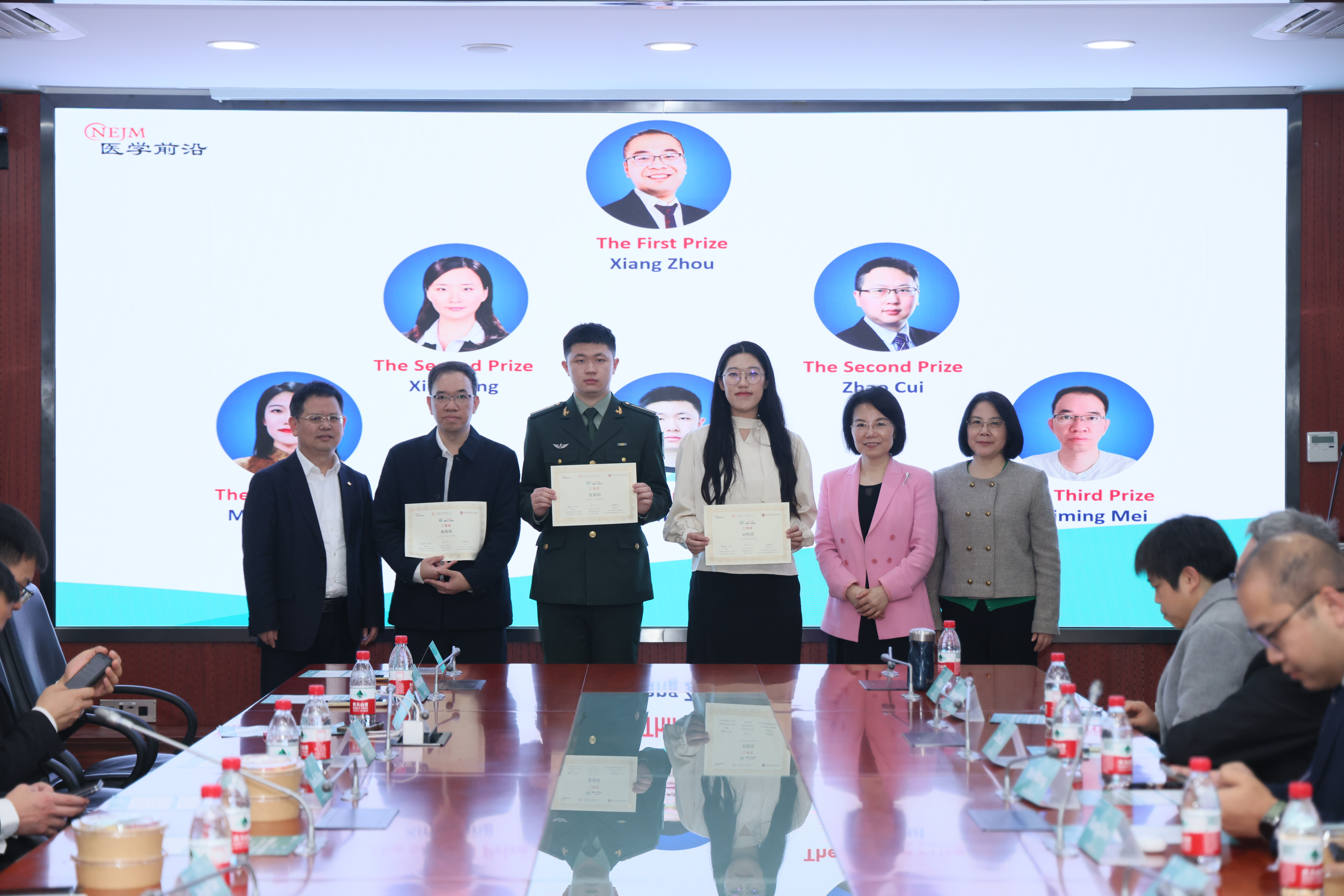
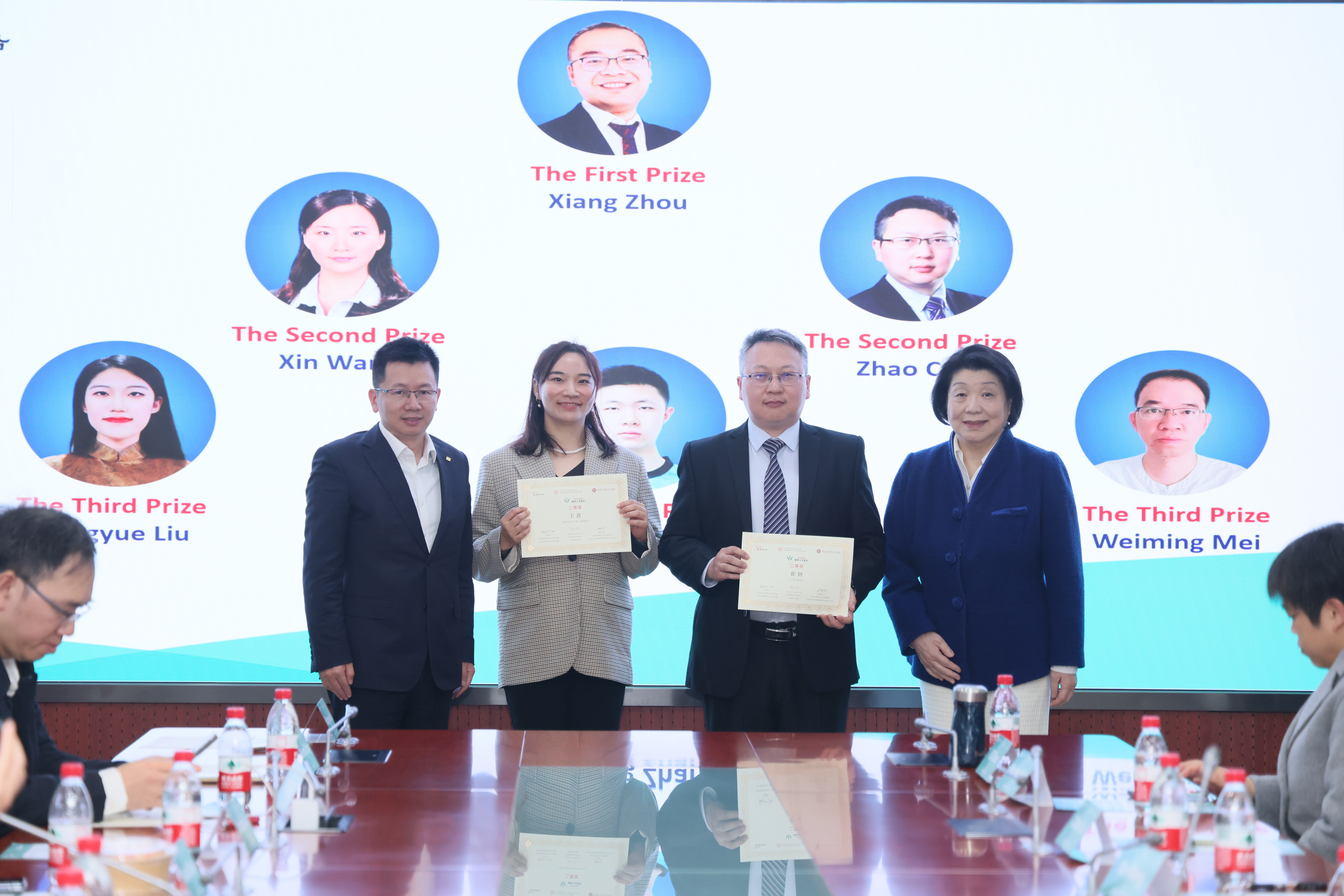
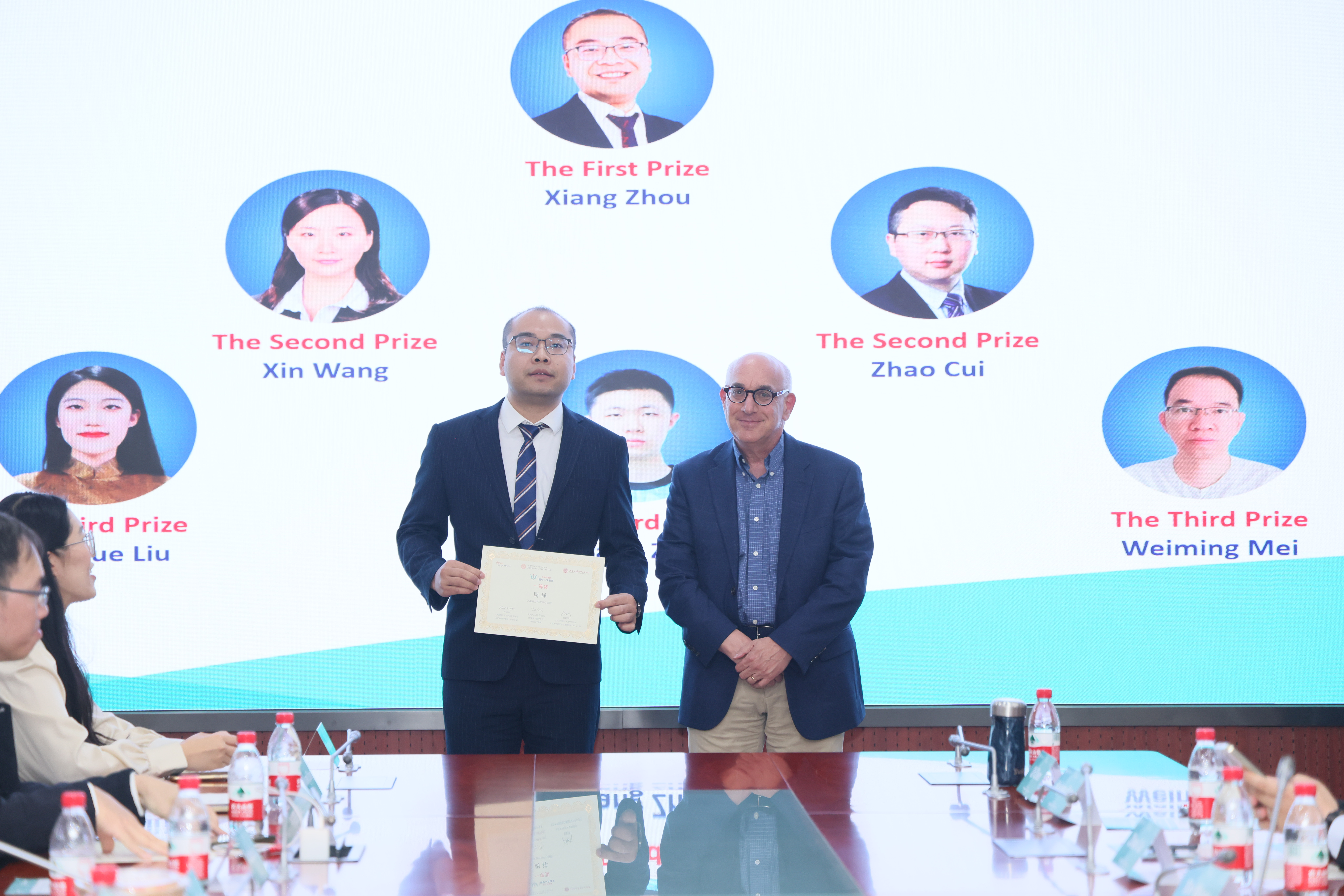
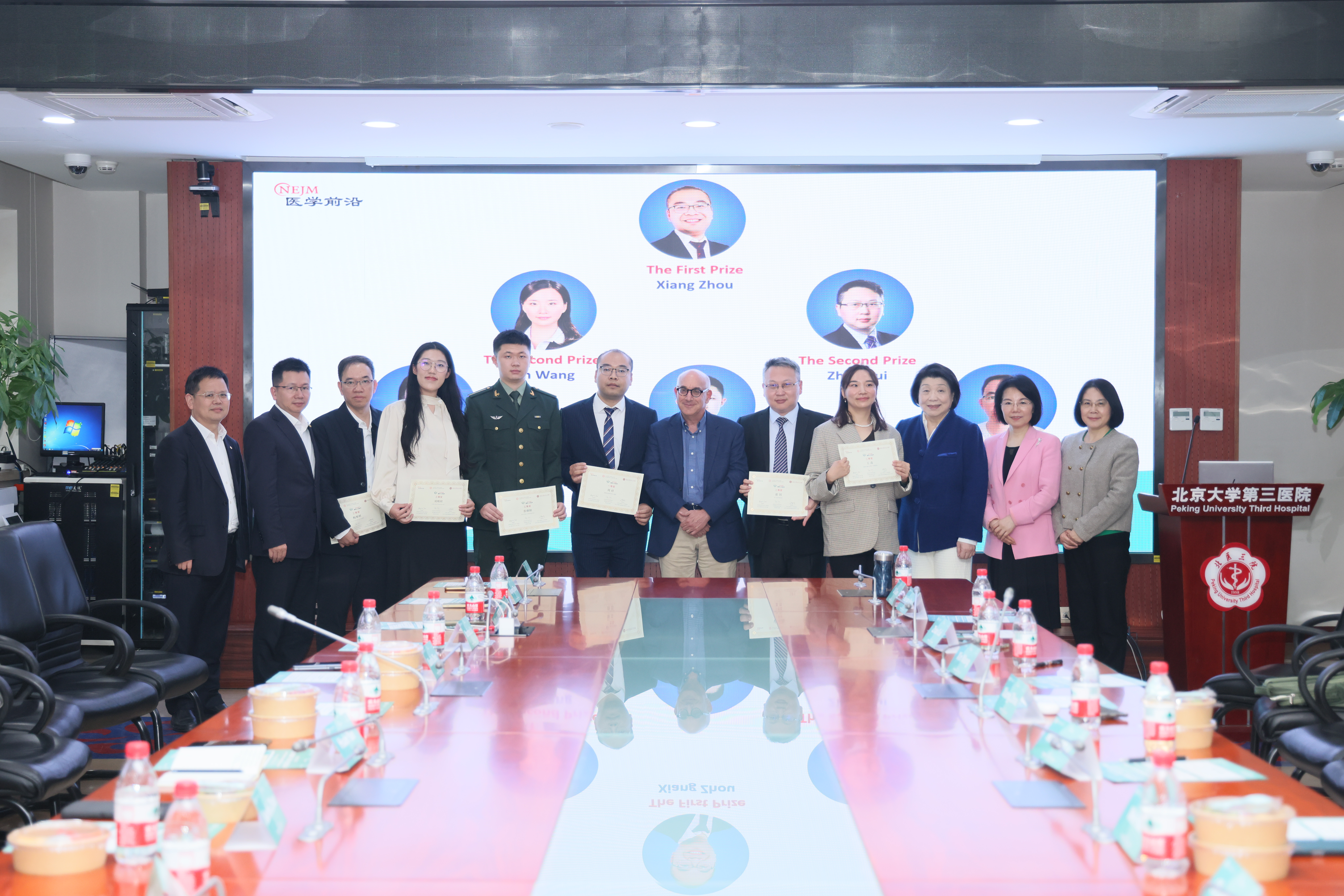
The first prize winner, Dr. Zhou Xiang of Yiyang Central Hospital in Hunan Province, fondly recounted his story of accompanying his sick grandmother, stressing the influence of family on medical treatment. He expressed his gratitude to the contest for giving him the opportunity to convey his innermost feelings of awe and gratitude. He also encouraged more young people to devote themselves to medicine, believing that students can change their destiny through medicine, which focuses on professionalism and humanistic care.
The second prize winner, Dr. Cui Zhao of Zhejiang Cancer Hospital, shared his thoughts on the clinical application of medical humanities and narrative medicine, as well as his own thoughts on teaching humanistic medicine. Through the practice of doctor-patient communication, he gradually realized the importance of humanistic care in improving patient compliance and building doctor-patient trust. He said that he would continue to promote the curriculum construction of narrative medicine.
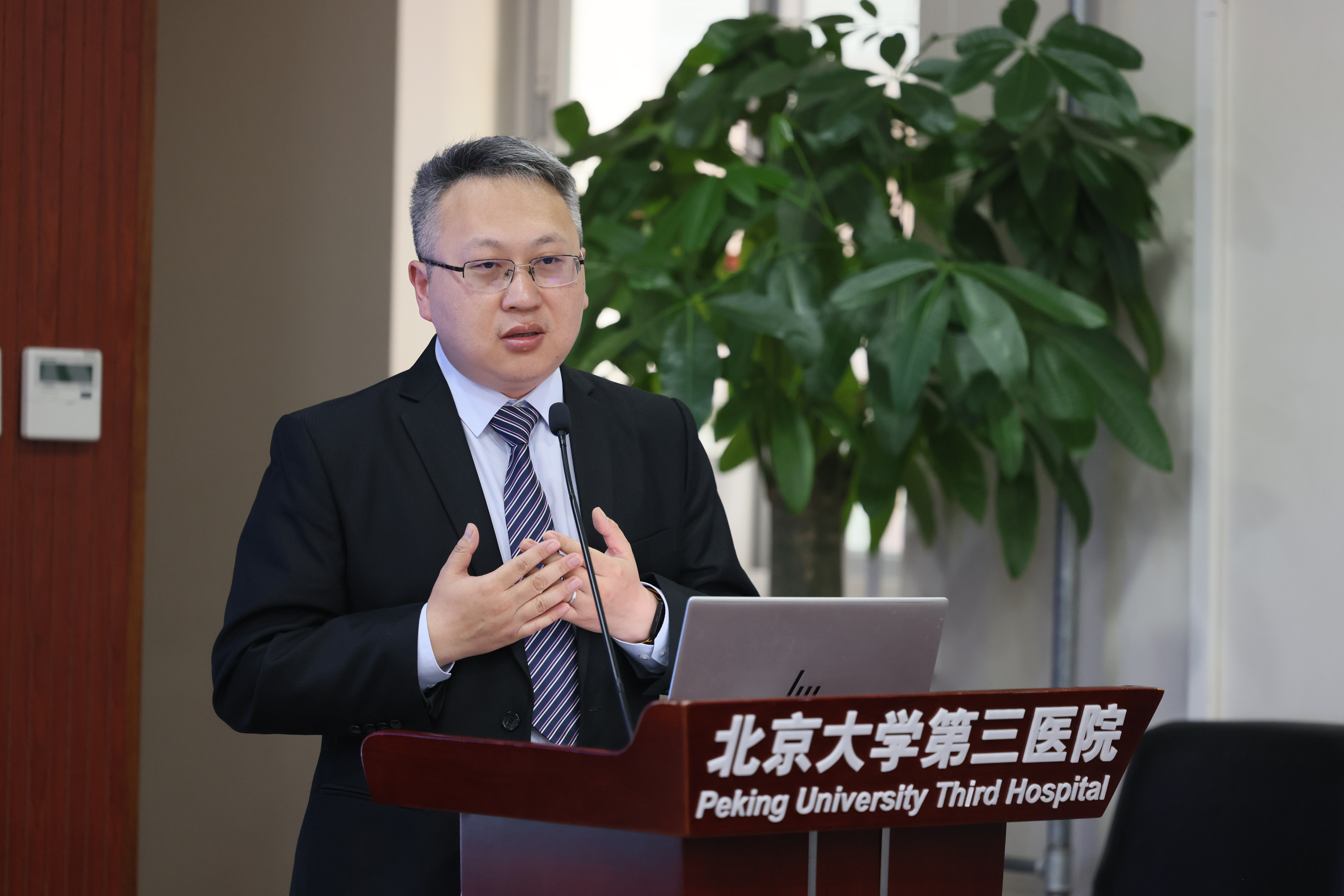
In the closing speech, Professor Guo Liping summarized the efforts made in the field of medical humanities in recent years, stressing that medical humanities is not only the responsibility of medical personnel, but also requires the support and institutional guarantee of the whole society. She mentioned that medical humanities not only lies in academic discussions, but also in transferring warmth and care to patients, so that medical personnel could better practice medical humanities under institutional support.
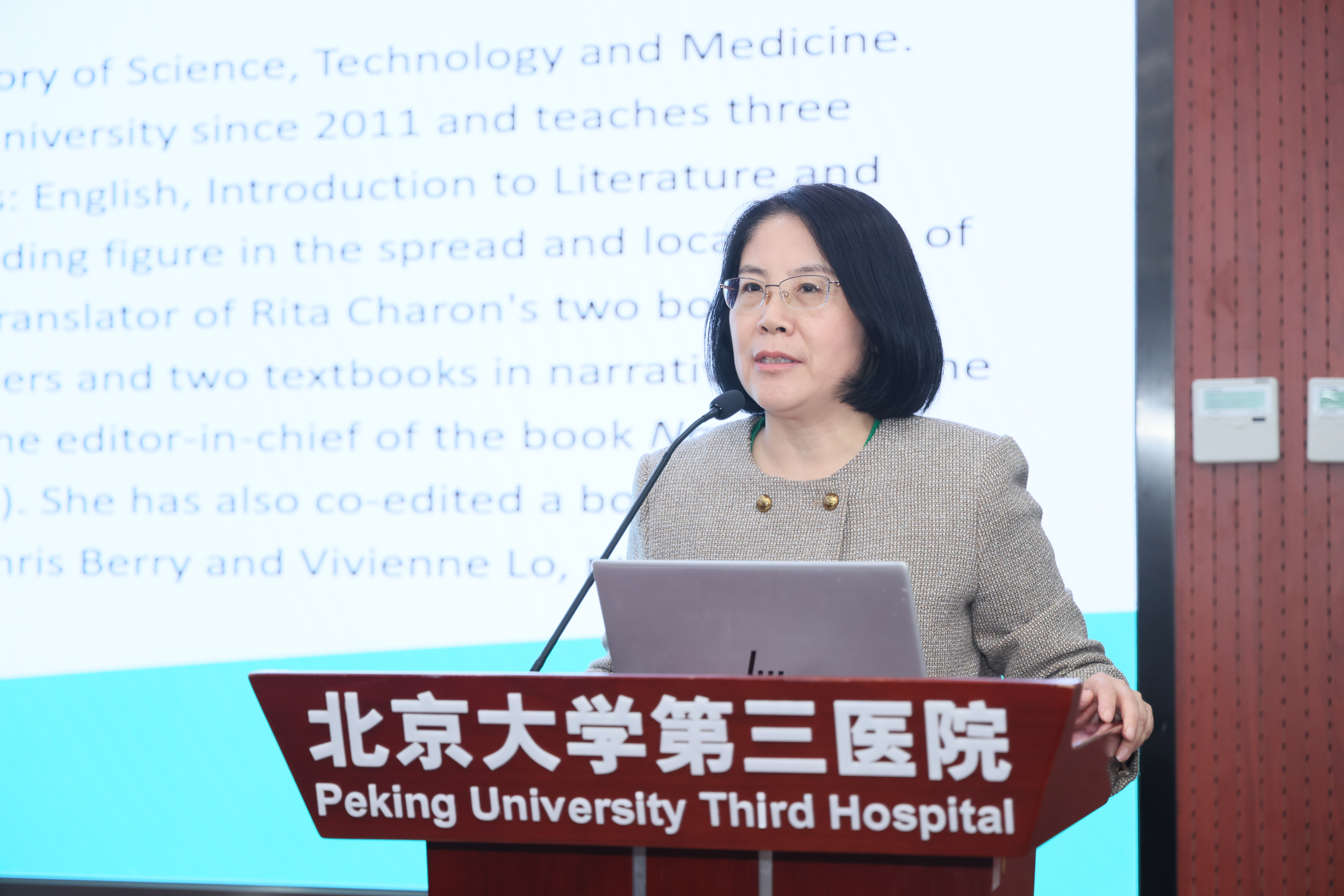
Mr. Xiao Wanchao, Vice President and Chief Operating Officer of Taikang Healthcare, congratulated the winners and the organizers. He pointed out that medicine requires not only exquisite professional skills, but also medical humanism, which is highly in line with Taikang's core values. He recalled his experience of humanistic care in hospital work, saying that the award-winning essays demonstrated the deep care and reflection of medical personnel on life. Taikang actively practices medical humanism in its business as well and hopes to continue to promote the progress of the medical industry and the inheritance of humanism in the future.
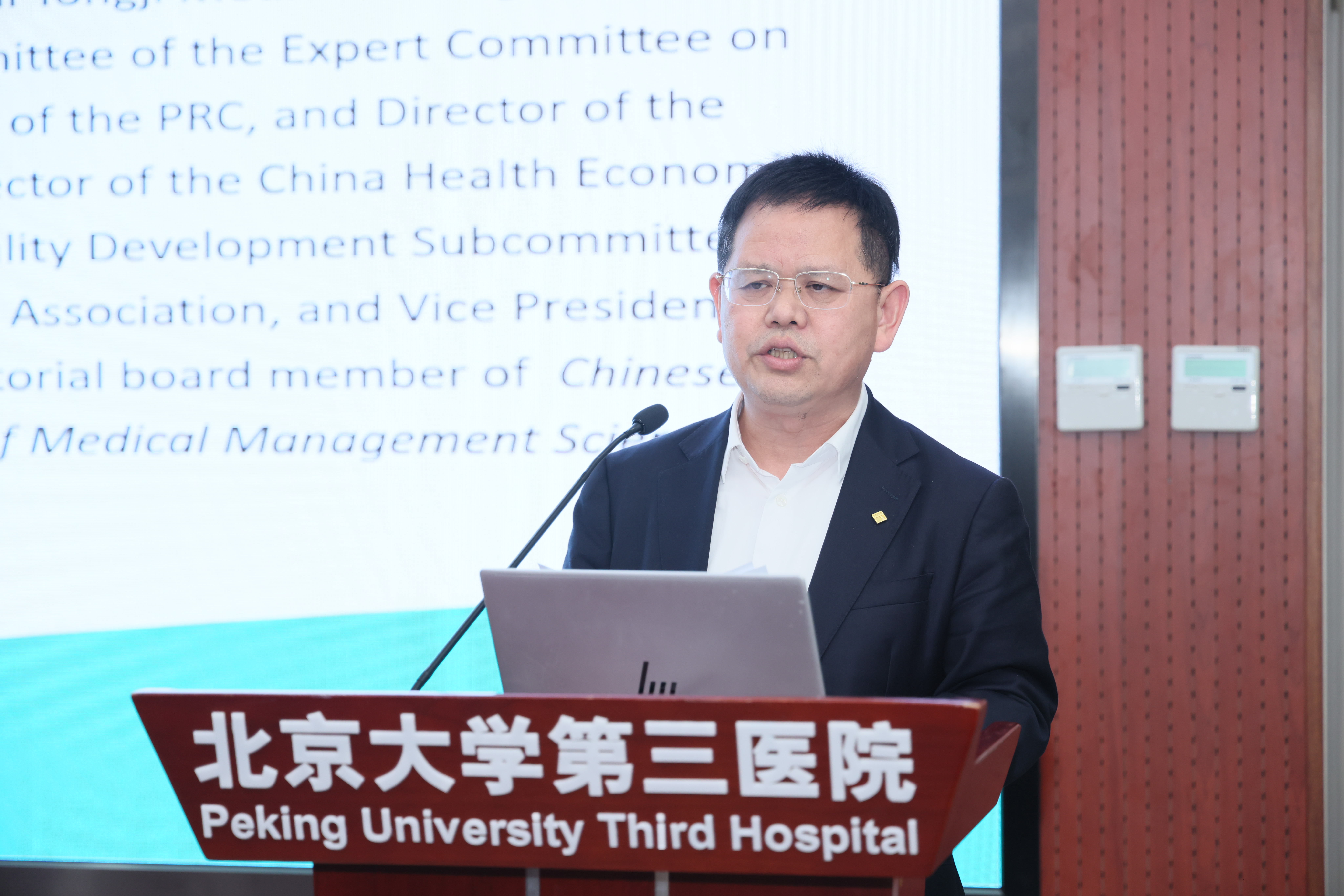
Professor Eric Rubin gave special gratitude to the organizers and participants of the event. He pointed out that humanism is particularly important to the professional significance of medical personnel against the backdrop of the rapid development of new technologies such as artificial intelligence. He also mentioned the heavy workload faced by medical personnel in China, and called on medical personnel to not only care for their patients, but also learn to care for themselves in such a high-pressure environment, which is also an important part of medical humanism.
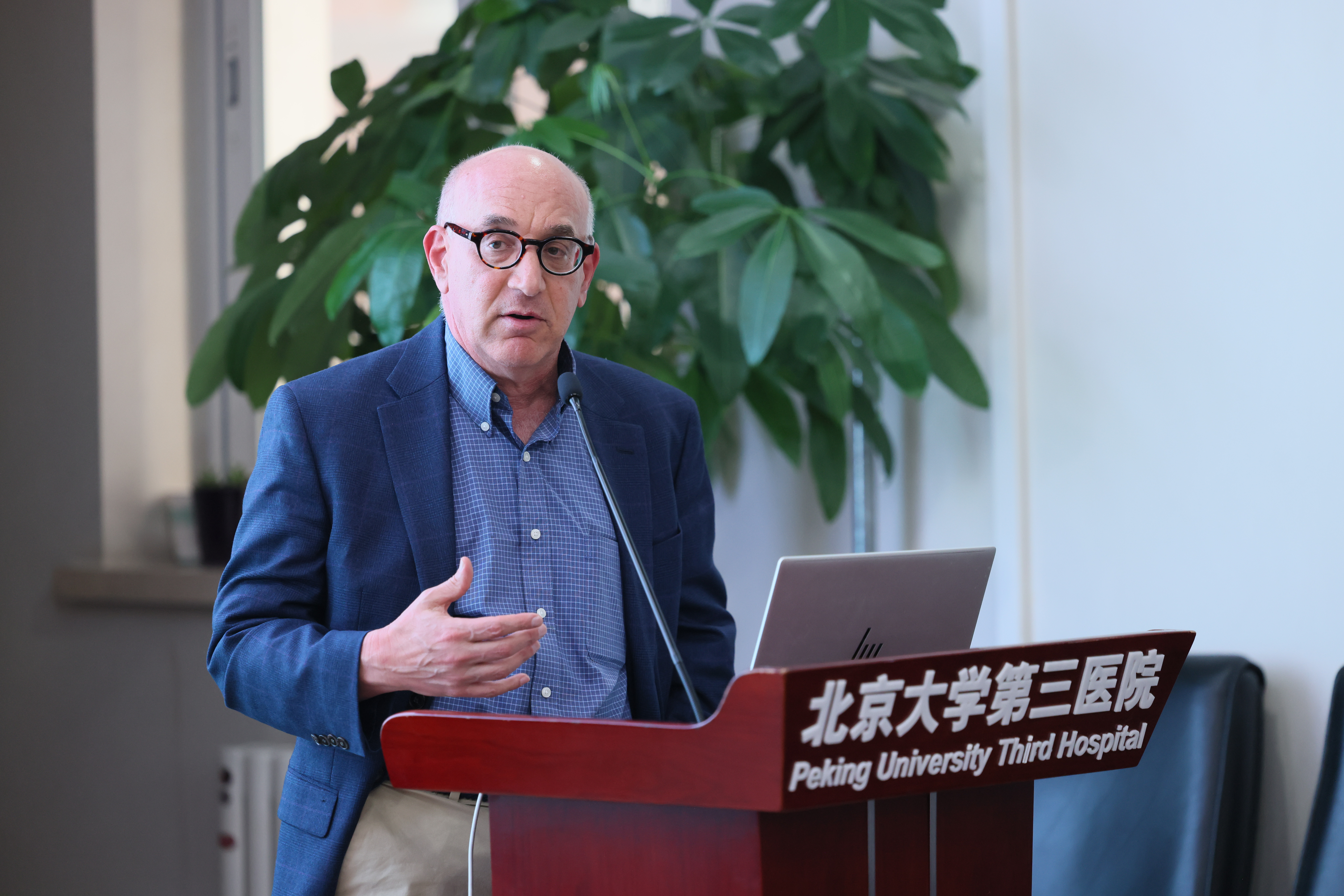
‘The Warmth of Medicine’ Medical Humanities Essay Contest provides a platform for medical practitioners to express their inner feelings and reflect on the doctor-patient relationship. As Ms. Bi Shumin said, medicine should not stop at technological breakthroughs, but also needs the warmth of humanity. The personal experiences and humanistic stories shared by the winners gave the audience a deep impression of the warmth and commitment of medical practitioners. In the future, the organizers will continue to promote the development of medical humanism, so that more medical practitioners can give medicine a deeper meaning while curing patients.


